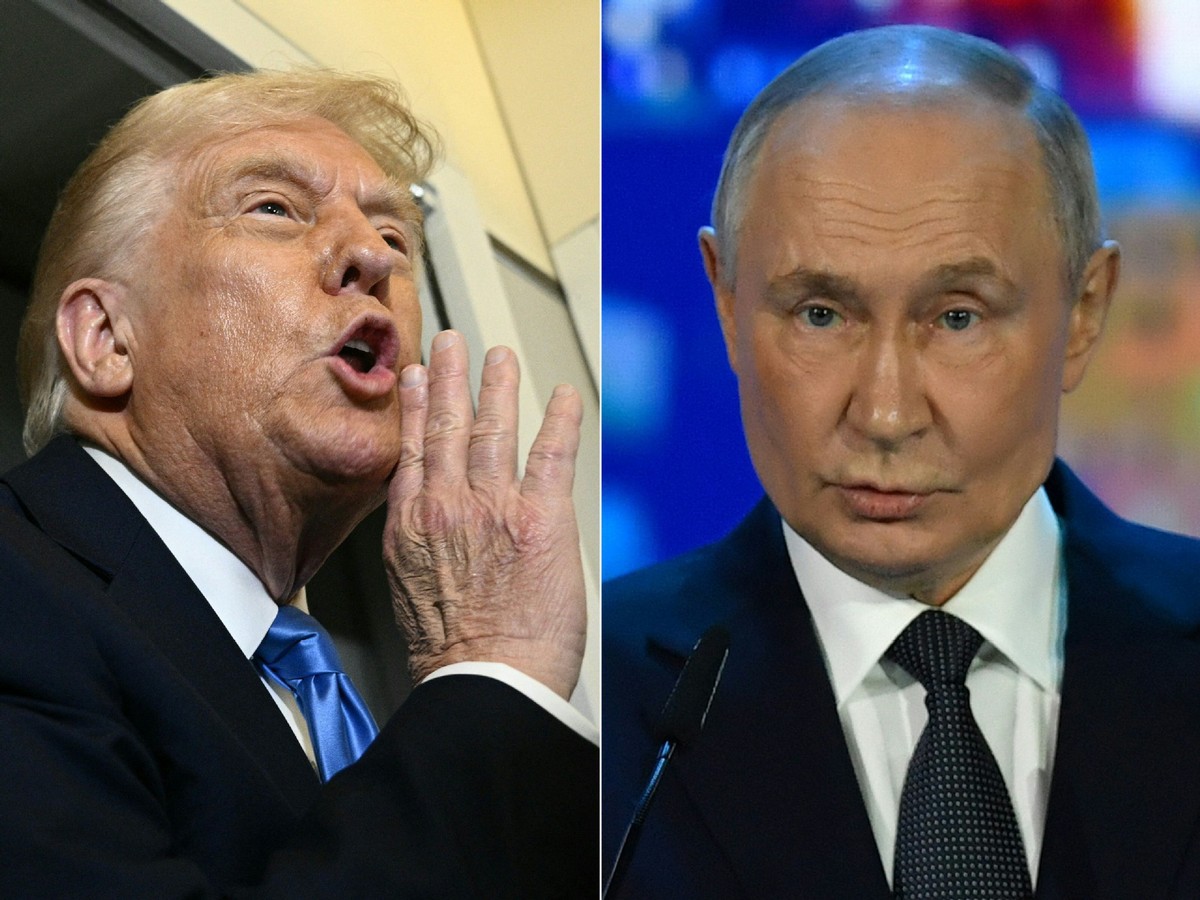Self-serving 'location' for dealmaking efforts
By LI YANG | China Daily Global | Updated: 2025-04-01 08:14

US President Donald Trump said he was "very angry" and "pissed off" when Russian President Vladimir Putin criticized the credibility of Ukrainian President Volodymyr Zelensky's leadership, adding that the comments were "not going in the right location".
"If Russia and I are unable to make a deal on stopping the bloodshed in Ukraine, and if I think it was Russia's fault — which it might not be — but if I think it was Russia's fault, I am going to put secondary tariffs on oil, on all oil coming out of Russia," Trump said in an early-morning phone call with NBC News on Sunday.
"That would be that if you buy oil from Russia, you can't do business in the United States," Trump said. "There will be a 25 percent tariff on all oil, a 25- to 50-point tariff on all oil."
Although Trump had previously criticized Zelensky as well, saying he was "sick" of his handling of the conflict, his rare criticizing of the Russian leader, with whom he has tried to maintain a stable relationship since his first term, indicates after securing some concessions from Kyiv, the US president might not have obtained what he hoped for from Russia. A country that is also good at maximizing its interest in dealmaking.
Trump's threat of new steep levies on Russian oil demonstrates he is well aware what the most effective measure is to drag Moscow's feet on the battlefield. The reason why neither the Trump administration nor its predecessor has targeted Russian oil for real is both of them would like to exploit the Ukraine crisis to maximize the US' interest.
The Joe Biden administration was intent on prolonging the conflict so that the US could continually benefit from selling weapons, strengthen its control of European allies, weaken Russia and smear China as the "enabler" of Moscow's "special military operation".
Trump's policy doesn't center on strengthening the US' alliances against Russia or China but taking advantage of the resolution of the Ukraine crisis to offload the US' burden as the prolonger of the costly conflict, and to explore ways to maximize the US' gains in the process.
So although the US' European allies still regard Russia as a threat to their security and "democracy", the Trump administration only regards Russia as a party it can work with, even if only temporarily, to meet its own narrow ends under the excuse of striving for peace.
The haste with which the Trump administration is seeking to strike a deal with Russia on the Ukraine crisis is another factor that has aggravated its anxiety that its dealmaking might not be fruitful.
So the resolution of the Ukraine crisis Trump is hoping to broker is essentially a process of rebalancing the interests of the US and Russia on Ukraine. That explains why Trump is "pissed off" at the inflexibility of Russia, especially after he had seemingly brokered an agreement between Ukraine and Russia on a 30-day moratorium on attacks on energy infrastructure and reopening grain export routes on the Black Sea.
Moscow has no reason to make concessions now since it has gained the upper hand on the battlefield.
Many observers believe that Trump's threat of "secondary tariffs" on Russian oil is only a bluff to try and put pressure on Moscow.
But if the threat materializes — the major Russian importers, including China and India, will bear the brunt of it, further straining trade relations between them and the US — it will serve to spur Russia to further intensify its offensive campaigns on the battlefield.
And if the US does support Ukraine accordingly, Moscow will realize that it can get what it wants or even more on the battlefield than it could have on the negotiation table.
Since the Trump administration is not intent on increasing the US' assistance to Ukraine, a country that the US is only interested in for its rare earth resources and some other mineral resources, to impose the steep duties on Russia's oil means the US is shutting the door for a negotiated peace in Ukraine.
That being said, as long as the US continues to focus on its own interests, even if a peace deal is forthcoming, it will only prove a precarious compromise of different interests, heralding the beginning of a new crisis in the foreseeable future.
























